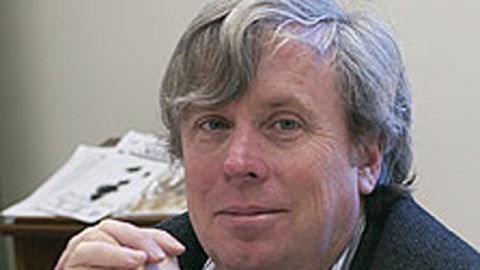Conservative Education–Part 5: Growing Up from Libertarianism (or a Beginning of an Answer to George Will)

This conservative post has nothing to do with the ISI conference, but it does have to do with education.
All over the internet, we find the conclusion that America is marked by creeping (and, in truth, sometimes creepy) libertarianism. That’s because, our experts say, our young people are being formed by the unlimited and unregulated menu of choice that is the internet. Consider the recent analysis by George Will on what he calls the nature of our regime.
But maybe we shouldn’t give the young such pride of place in thinking about our future. For one thing, the young tend to get old and, if they’re lucky, very old. We have an aging society oriented around the young. In the long run, that society is going to be less about preferential options for the young. After all, really old people seem to have all the time in the world to VOTE.
Not only that, the young sometimes grow up. I just got an email from one of my smartest students ever. At Berry, he was all about economics and its libertarian values. I once asked in class whether anyone was a consistent Machiavellian: That is, all about using other people to satisfy his or her personal desires. This guy raised his hand. I had to tell him that if he were really a consistent Machiavellian, we’d never know it. Machiavelli says that the best users employ the langauge of religion and morality to sucker other people into doing what they want. The best libertarians (or libertines) are always closeted ones.
Open Machiavellians–such as many professor of economics, Randians, and such–are really bragging about their freedom, and nobody in his or her right mind would really believe them. I remember my bragging student being rather sad and even death-haunted, even with all the good things modern life and his own efforts had given him.
Here’s what this young man just wrote me. It’s worthy of your wonder, and I will display his words with only two comments. He’s grown up well, and he actually got a lot out of his liberal and religous education at Berry College:
I enjoyed the post you linked to [my BIG THINK post right before this one]. I think you might find I have mellowed a bit over the years. I’m not really the raging libertarian I once thought myself to be. I think I may have mentioned that I accepted Christ when I was 24. At my core I would still generally agree with Locke in that charity and love are properly placed on the personal level. But I view it that way through the lens that God calls us as individuals to love and be charitable to one another. Too often, I think that the perspective becomes (at least for charity) the government is better positioned to be charitable. We then abdicate our personal responsibility by believing that the government will take care of that function for us.
I find that troubling since I think we grow as men and women through sacrifice. Charity is a form of sacrifice, but it can come at various levels. At the one end of the spectrum, there is the relational gift of one individual giving directly to another, which I think is particularly powerful because it is done face-to-face with an open acknowledgement of the dignity of the other person. I also personally believe that this level of charity is the most likely to inspire some form of personal responsibility on the recipient. And then somewhere towards the other end, you have the impersonal bureaucrat dispersing “charity” to an individual she will never see with money that is not hers. I think the former is a far better representation of what is expected of us and is closer to the type of sacrifice that refines us. That said, I do take a more Hayekian view around the need for minimum social safety nets in those cases where personal charity has failed.
There is a need for heroes and saints in the world today. They certainly would make better role models than the ones that society promotes. But I think coupled with that there is a deep need to recognize evil and monsters in the world. In some ways, heroes and saints are best identified and admired when there is an open acknowledgement that their opposite exists and that we should fight against those opposites.
Well, one more comment: His chastened, limited devotion to liberty is based on the insight, made famous by Solzhenitsyn, that the line between good and evil goes through every human heart. That’s the foundation of liberty I can believe in.





